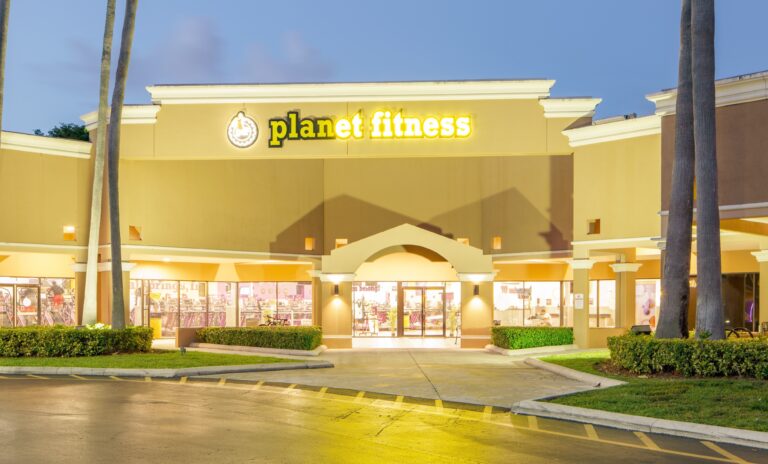Commercial real estate investment strategies offer a variety of options for investors seeking income and portfolio diversification. This article focuses on the triple net lease (NNN commercial lease), a popular structure for retail property for sale and other commercial assets. We’ll explore the pros and cons of NNN ownership, how to identify good NNN tenants, and strategies for investing in this sector.
Key Takeaways:
- Triple net leases shift operating expenses (taxes, insurance, maintenance) to the tenant.
- Benefits include steady income, strong tenants, and reduced management time.
- Drawbacks include vacancy risk, tenant neglect, and limited return potential.
- Ideal locations are high-traffic areas with good visibility and access.
- Strong NNN tenants have a proven track record, financial strength, and commitment to the location.
- NNN properties are suitable for investors prioritizing stable cash flow and lower risk.
Understanding Triple Net (NNN) Commercial Leases
Imagine a shopping center. Tenants pay rent, but there are also common areas (parking lots, landscaping) shared by everyone. In a typical lease, the landlord covers these costs. A net lease shifts some or all of these expenses to the tenant. Here’s a breakdown:
- Gross Lease: Tenant pays one rent amount; landlord covers all operating costs.
- Single Net Lease: Tenant pays rent plus a share of one expense (usually property taxes).
- Double Net Lease: Tenant pays rent plus a share of two expenses (taxes and insurance).
- Triple Net Lease (NNN Lease): Tenant pays rent plus a share of all three major expenses (taxes, insurance, and maintenance).
Benefits of NNN Commercial Lease Properties
For investors seeking ROI in commercial real estate, NNN properties offer several advantages:
- Steady Income: NNN properties generate consistent rental income, ideal for investors seeking predictable cash flow.
- Long-Term Stability: Leases are often 10+ years, providing income stability over a long period.
- Strong Tenants: NNN leases often attract creditworthy national corporations like Walgreens or Starbucks, reducing tenant risk.
- Built-in Rent Increases: Leases typically include rent bumps over time, increasing your income stream.
- Reduced Management Time: Tenants handle maintenance, freeing you from day-to-day property management burdens.
Drawbacks to Consider in NNN Commercial Lease
While attractive, NNN properties also come with potential drawbacks:
- Vacancy Risk: Many NNN properties have single tenants. If they vacate, your income stream disappears entirely.
- Re-Leasing Challenges: Properties built for specific uses (e.g., fast food restaurants) can be expensive to renovate or difficult to find new tenants for.
- Tenant Neglect: Tenants responsible for maintenance may defer repairs, leading to potential problems upon lease expiration.
- Bond-like Returns: Due to long leases and strong tenants, NNN properties often deliver lower, more stable returns, similar to bonds.
Ideal Locations and Tenant Types
NNN properties are common in office and retail sectors. Look for high-traffic areas with excellent visibility and easy access. Prime examples include single-tenant, freestanding NNN properties like bank branches or coffee shops situated near popular shopping centers.
Technically, any business can be an NNN tenant, but some are more common:
- Retail: Restaurants (McDonald’s, Chipotle), Coffee Shops (Starbucks), Convenience Stores (7-Eleven), Drug Stores (Walgreens)
- Other: Gyms (LA Fitness), Gas Stations (Sunoco), Big Box Retailers (Best Buy)
As Investopedia explains, “Many large, multinational companies that want brand uniformity opt for triple net leases.”
Finding NNN Commercial Lease Investments
There are several ways to invest in NNN properties:
- Direct Purchase: Search online platforms for available NNN retail property for sale.
- Triple Net REITs: Invest in publicly traded REITs specializing in NNN properties, like shopping center REITs for specific types of properties.
- CRE Private Equity: Partner with a commercial real estate private equity firm focused on NNN assets.
Qualities of Strong NNN Tenants
The success of your NNN investment hinges on the tenant’s strength. Here’s what to look for:
- Established Company: A track record of success demonstrates a viable business model.
- Financial Strength: Look for consistent profitability, on-time payments, and manageable debt levels.
- Experienced Management: Strong leadership inspires confidence in the tenant’s ability to run the business effectively.
- Commitment to Location: A tenant invested in the location is more likely to maintain the property.
Are NNN Commercial Lease Properties Right for You?
The answer depends on your investment goals. NNN properties are a good fit for investors seeking:
- Stable Cash Flow: Predictable rental income provides a reliable income stream.
- Passive Income: Reduced management responsibilities free up your time.
- Lower Risk: Strong tenants and long leases mitigate some investment risks.
However, investors seeking high growth potential and potentially explosive returns may be disappointed with NNN properties’ more modest, bond-like returns.
Summary: NNN Commercial Lease
Triple net leases offer a unique structure within commercial real estate. They provide investors with a steady stream of income, stability through long-term leases, and potentially less management hassle. However, they also come with vacancy risks, potential tenant neglect, and limited upside compared to other investment options. Carefully consider your investment goals and risk tolerance before diving into the world of NNN properties.

